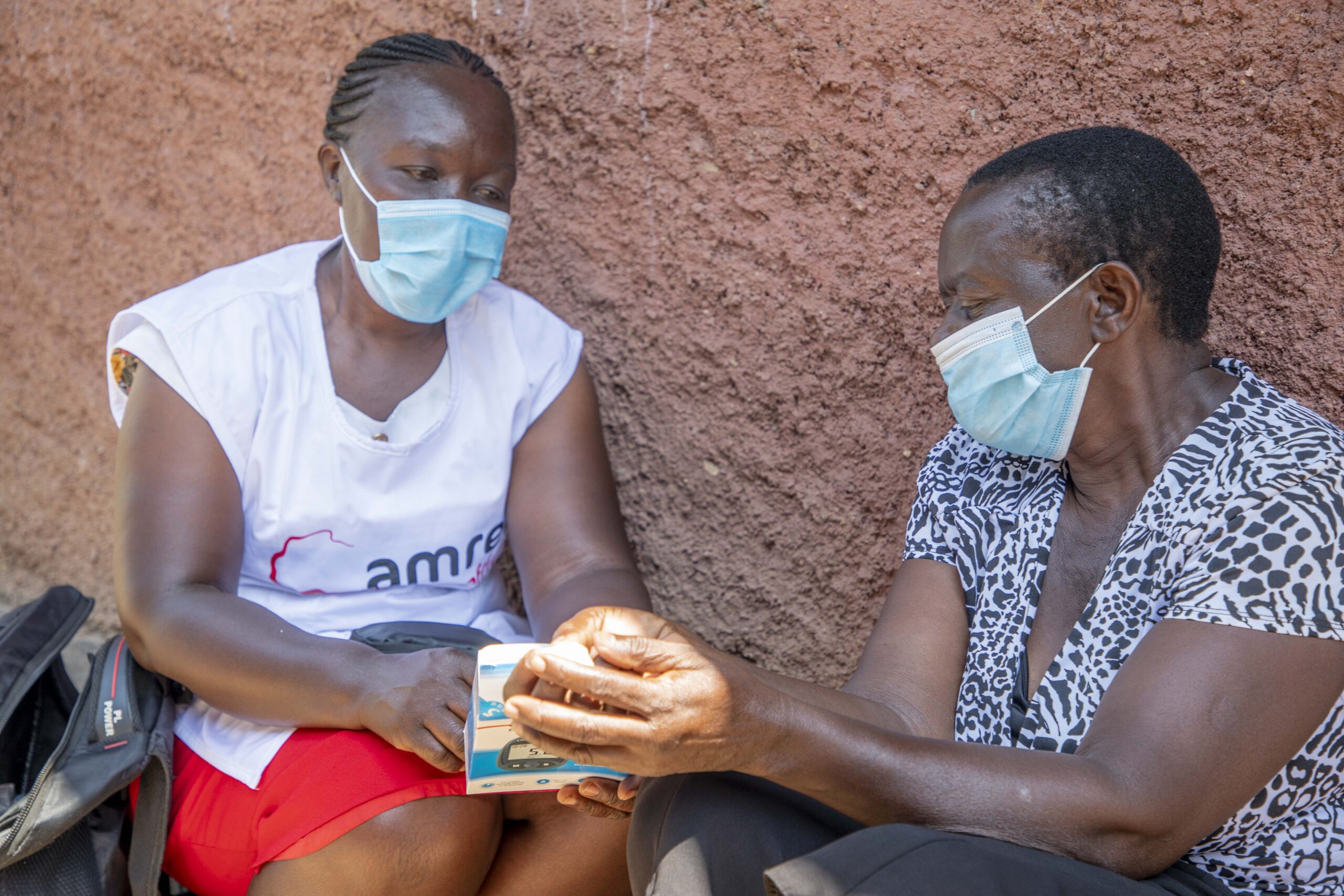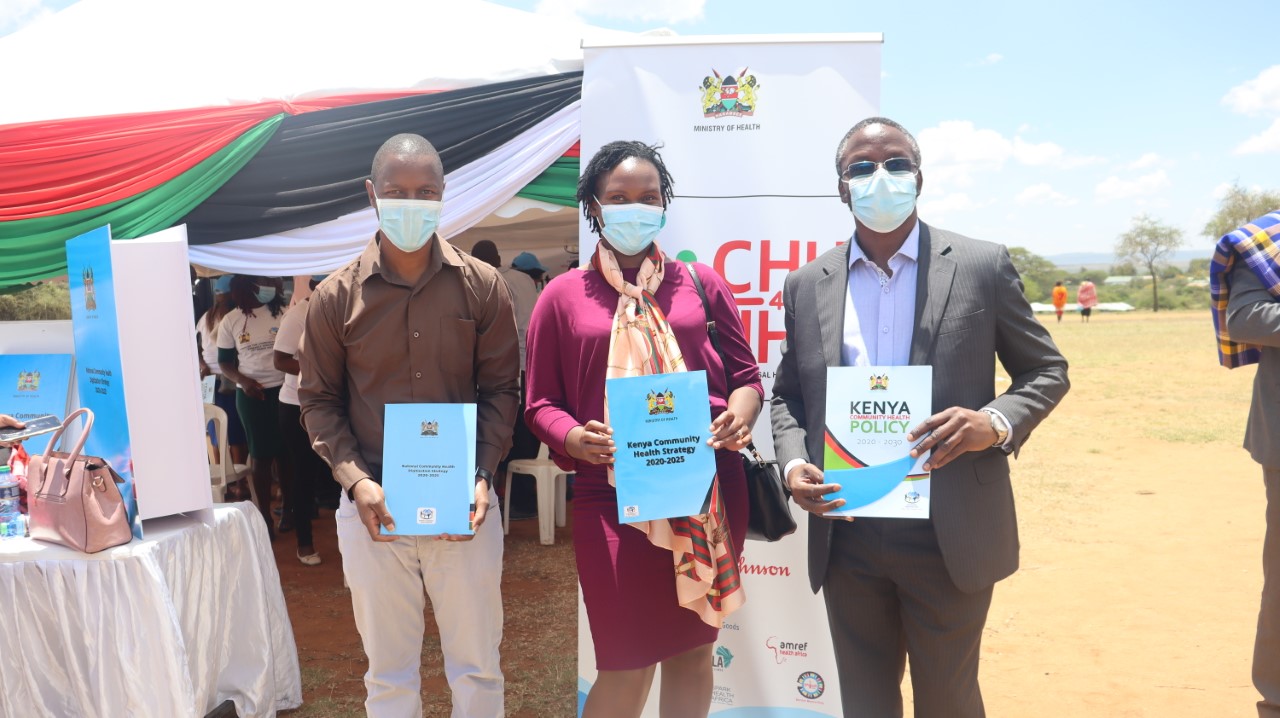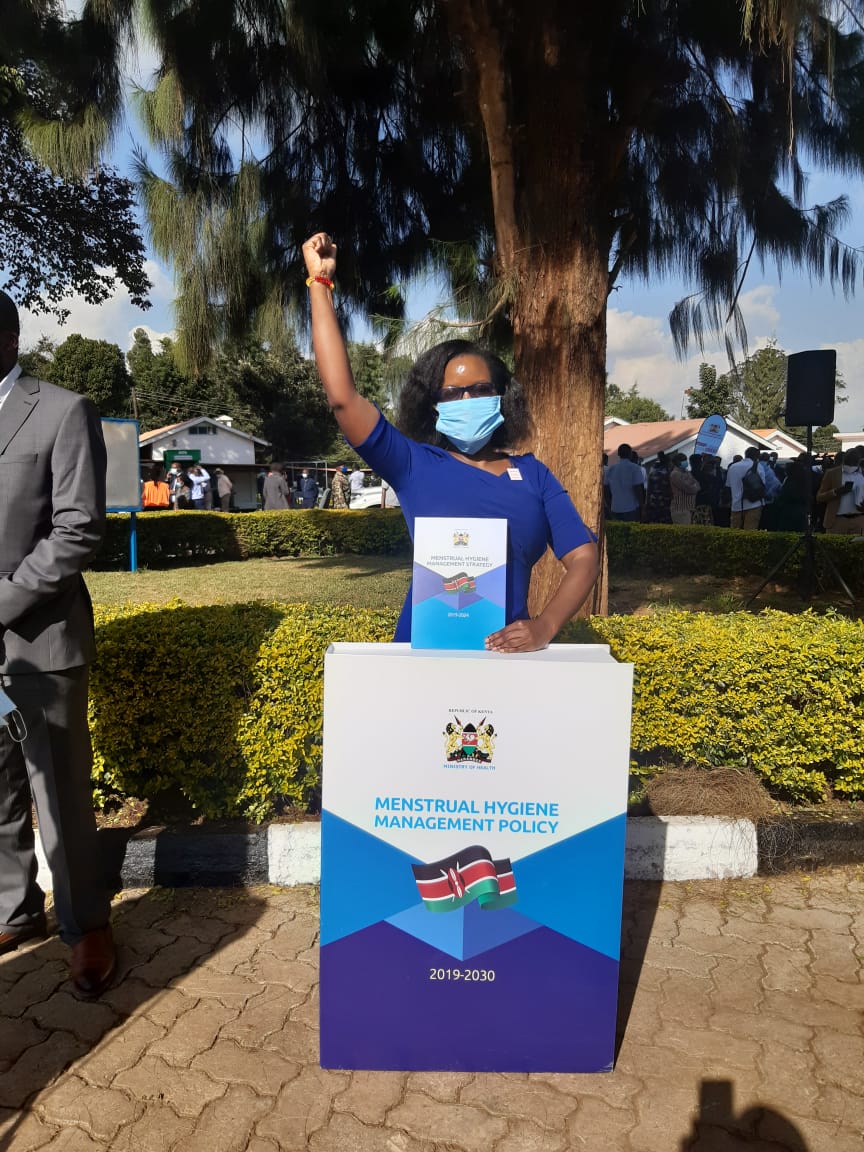Ruth Lepata benefits from Water supply and Food sovereignty project
Wednesday, 4 April, 2018

Ruth Lepeta, a Community Health Worker (CHW) in Lpetepet village is a happy woman, thanks to training by Amref Health Africa.
The mother of four young children says the training has been a big blessing as it has helped improve quality of her family’s life.
Armed with the training, Lepeta has resorted into giving back to the community by advocating for construction of pit latrines to reduce incidences of contagious disease and bring dignity to members of the community.
“We were taught how to dig pit latrines and use them. Before then, we used to defecate in the bushes, this brought about the burden of diseases among our people,” she recalls.
The training she says is a major turning point and has gone a long way in curbing outbreaks of diseases such as cholera and trachoma.
Additionally, Lepeta was also trained on proper waste management, general household cleanliness and hygiene.
Simple activities like sun-drying utensils she says has helped reduce chances of contracting infectious illnesses.
“We were instructed to dry our clothes before wearing. Amref Health Africa also helped us to dig compost pits to dispose trash. This has helped us in keeping our homes clean for the safety of our children,” she says.
In a community where livestock keeping is a predominant economic activity, oblivious of potential health risks Lepeta previously shared common roof with the animals.
With the training, she now understands that these animals could be capable of transmitting life threatening diseases.
Because of this, she set up a cattle shade, a distant away from the home.
In addition, she was also trained on proper animal handling techniques, especially during milking.
Personal hygiene was also emphasised to help reduce probability of disease transmission.
Apart from hygiene, Ruth now understands the importance of using a treated mosquito nets and regular re-treating to ensure her children are safe from malaria-transmitting mosquitoes.
Nutritional health has also been crucial component advocated by CHWs doing rounds to monitor young children’s health progress.
With such gains, the services of community health workers and volunteers have lately been extended to schools.
Through Water Supply and Food Sovereignty Project, school-going children are trained on matters touching on nutrition, hygiene and health during the health club session.
In turn, they transmit these values at home, leading to better and healthier lives for their families.
This has proved effective in the area.
Amref Health Africa teams up with African communities to create lasting health change.




